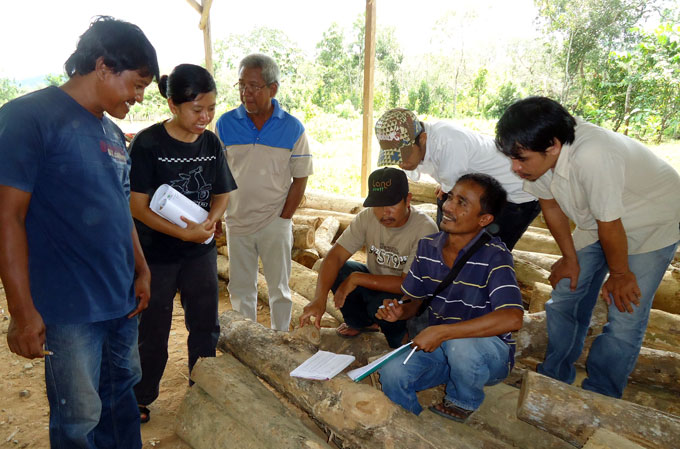The topic of social entrepreneurship was mentioned in at least three discussion panels at the 2013 Global Entrepreneurship Summit (GES) held in Kuala Lumpur. Many guest speakers predicted that this concept will become a trend in the near future.
Melody Hossaini, a social entrepreneurship expert from England, defined “social entrepresurship” as the practice of adding value to society while performing as a successful corporation. This differs from the work of charity organizations in that they only accept donations without doing actual business.
Social evils prevention
The 2013 GES panel discussion welcomed Silverius Oscar Unggul, a 40 year-old Indonesian well known for his role in protecting forests in Indonesia and around the world.
In 2005, two thirds of Indonesia’s forests were in critical condition due to illegal logging. According to information issued by Ashoka, a global organization supporting social entrepreneurs, the forest will soon disappear completely.
Silverius and his friends, who live in southeast Sulawesi, came up with an idea to simultaneously help forest residents and preserve the forest. Residents would manage the forest, afforesting and establishing logging enterprises. Under Silverius’ guidance, they would manage forest statistics, protect forests from illegal logging, and connect them with buyers from within and outside the country.
After one year of the eco-friendly program, with the support of the Indonesian government, residents working in the program earned four times more than in previous years. For his success, Silverius won Ernst & Young’s entrepreneur of the year award as well as an environmental award issued by Conde Nast travel magazine in 2008.
The future trend
Social entrepreneurship is an enterprise that focuses on defining and solving social problems. Unlike traditional enterprises, new companies that subscribe to this practice add value to their society rather than just making a profit.
The main objective of social enterprise is to make long-term and large-scale changes, propose new methods to help solve social problems, and convince one’s society or community to make necessary adjustments for the betterment of its people.
“Social enterprise is the act of turning threats into opportunities. Normal enterprise focuses on making money and solving social problems later. We use business to solve social problems first,” Silverius told Tuoi Tre in an interview.
Melody Hossaini asserted that for-profit businesses need to start paving the way for the new trend of adding value to the society and community.
“The social entrepreneurship trend is booming everywhere in the world. Young people are now focusing on doing good things for the society,” said Ben Simon, the founder of Food Recycling Network (FRN) from America.
FRN was founded in 2011 by Simon and his friend. They collect food left on university students’ plates and give it to homeless and poor people in their community.





















































